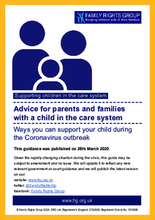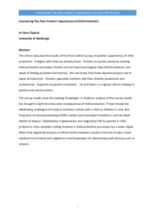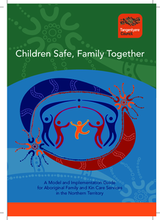This section highlights resources focused on the participation of parents and caregivers in decisions about children's care, including decisions about their own children and their placement in alternative care, as well as advocacy efforts to reform systems of care and protection for children.
Displaying 41 - 50 of 98
This article documents the author's experiences with the state’s contemporary removal of Aboriginal children in Western Australia (WA) and the practice of Aboriginal Family Led Decision Making (AFLDM), a family led decision making process supported as best practice for Aboriginal families.
The aim of this cluster randomized controlled trial (RCT) was to test the effectiveness of a contact intervention for parents having supervised contact with children in long-term OOHC.
This guide aims to help parents and families of children who are looked after in the care system. The guide also provides information for families whose children have been adopted.
The Children’s Trust Fund Alliance joined with a group of parents from the BPNN to produce these issue briefs. They include the perspectives of parents with life experiences in using services to strengthen their families and focus on timely and important topics.
This blog post describes the benefits of parent advocacy for parents involved in the child protection system and includes a letter of thanks written by Taliah Drayak to her advocate.
This article discusses the results of the first Scottish survey of parents’ experiences of child protection.
This article reports on the analysis of 11 qualitative interviews with parents who had attended child protection case conferences (CPCCs) in Scotland.
This series—which begins with a focus on schools— exposes the harm of punishing parents instead of addressing the root causes of child welfare involvement in the U.S.
‘Children Safe, Family Together', the new family and kin care model outlined in this paper forms an integral part of the overall strategy being currently implemented by Territory Families (TF) to transform Out-of-Home Care in the Northern Territory (NT) and address worrying trend data pointing to the significant over-representation of Aboriginal and Torres Strait Islander children in the NT child protection system.
This article describes David Tobis's keynote address at the Family Inclusion Network South East Queensland’s Global Day of Parents Forum and the story of the parents and allies who changed the child protection system in New York City.



